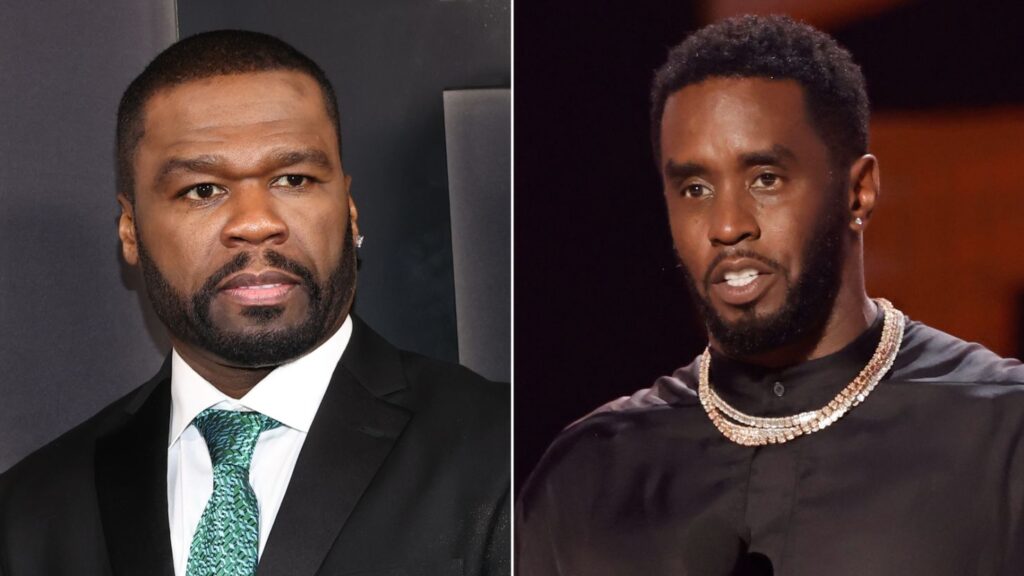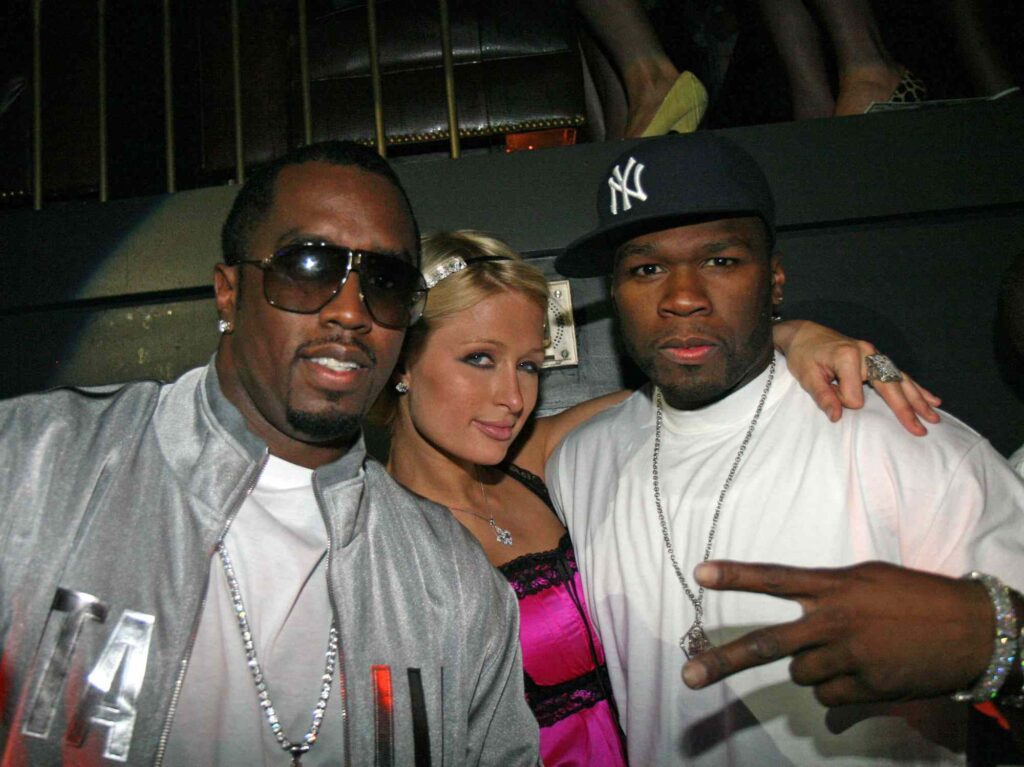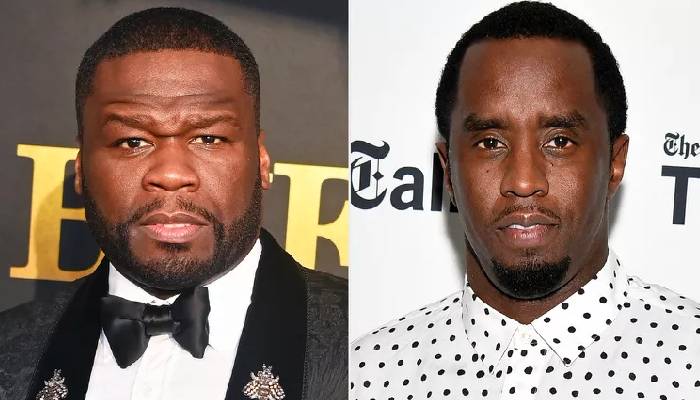A new wave of true-crime storytelling is about to ripple across the entertainment world as Netflix prepares to release Sean Combs: The Reckoning, a four-part documentary chronicling the rise and fall of one of music’s most powerful and polarizing figures. The announcement alone has stirred renewed debate about fame, influence, and the darker truths that can hide behind genius. For decades, Sean “Diddy” Combs was known as the architect of a cultural movement. His fingerprints were everywhere—on the sound of hip-hop, on the fashion trends of the early 2000s, on the iconic moments that shaped an era. But the man once hailed as a visionary and an empire builder is now known for something else entirely: a criminal conviction, a series of harrowing allegations, and the collapse of the superstar myth he spent years crafting.
The Netflix project arrives at a time when Combs sits in a federal prison, serving a 50-month sentence for transportation to engage in prostitution. Many once loyal fans are still stunned by how quickly his legacy unraveled. Others argue that the signs were always there, buried under fame, power, and the layers of image management that protected him. The documentary aims to make sense of both the legend and the downfall, examining not only the man but the cultural climate that enabled him. What makes this series especially significant is the involvement of rapper Curtis “50 Cent” Jackson, who serves as the executive producer. Known for his long-standing feud with Combs, 50 Cent has often been the sharpest voice criticizing the mogul’s behavior. Yet his role in the documentary doesn’t feel like the continuation of a rivalry—it feels like a pivot toward accountability, using his platform to support the stories of those who say they were harmed.
Netflix promises exclusive interviews, never-before-seen footage, and access to people who lived within Combs’ orbit while his empire was thriving. According to the streamer, each episode focuses on how his success and influence created a protective shell around a hidden world—one that, according to several accusers, involved manipulation, coercion, and abuse. Director Alexandria Stapleton, whose previous work explored issues of privilege, celebrity, and power, says she was drawn to the project after witnessing the bravery of Casandra “Cassie” Ventura. Cassie, a singer and model who spent years in a relationship with Combs, filed a stunning sexual assault lawsuit against him in November 2023. The lawsuit not only triggered public shock but launched a broader investigation into allegations many believed were buried forever.
Stapleton said she wondered where Cassie found the courage to go up against a mogul like Combs—a man whose influence stretched far beyond music and entertainment. That question became the emotional foundation of the documentary. Cassie’s voice, along with the voices of others who came forward, shaped the narrative direction of the series, giving viewers a sense of the cost of speaking out against a powerful figure. During Combs’ federal trial, Cassie served as the star witness. Pregnant at the time, she delivered days of emotional and difficult testimony describing her experiences and the alleged pattern of abuse she endured. Viewers will likely see parts of that journey reflected in the documentary. Another witness, identified only as “Jane,” provided equally disturbing testimony. She alleged that Combs threatened to stop paying her rent unless she agreed to have sex with other men at his direction. Her testimony described a relationship defined by fear, pressure, and desperation—stories that now paint Combs in a dramatically different light than the charismatic entrepreneur many believed him to be.
The trial ended in a mixed verdict. The New York jury found Combs guilty of two counts of transportation to engage in prostitution but acquitted him of the more serious charges of racketeering and sex trafficking. Even so, the conviction represented a stunning fall from grace. For a figure who once dominated music, fashion, and television, the outcome was a cultural turning point. His legal team has continuously pushed back against the allegations, calling many of them fabricated or opportunistic. They attempted to overturn the verdict or secure a new trial, but the court rejected those motions, solidifying his 50-month sentence. According to the Federal Bureau of Prisons, Combs is scheduled for release in May 2028, although that date may change depending on how his sentence unfolds.
While Combs serves his time, the storm surrounding him continues to grow. Following his conviction, the Los Angeles County Sheriff’s Department opened a new investigation into allegations from a male music producer and publicist who claimed Combs forced him to perform a sex act during a 2020 photoshoot. The alleged assault, according to police statements and media reports, took place in a warehouse and involved clothing that belonged to the late rapper Notorious B.I.G. Such details only intensified public interest and scrutiny. Combs’ legal team responded by calling the claims “meritless,” but the investigation continues. In many ways, the unfolding legal cases serve as a continuation of the reckoning that began with Cassie’s lawsuit. The Netflix documentary arrives at a moment when new allegations seem to emerge regularly, each one contributing to a portrait of a man whose influence may have concealed years of misconduct.
The series also confronts the cultural context that allowed Combs to thrive unchecked. For years, he was seen as a symbol of success—a self-made mogul who rose from humble beginnings to build an empire that shaped global pop culture. But the documentary challenges viewers to reconsider how celebrity power works. How does an industry protect its stars? Who benefits from silence? And how do people justify looking the other way when fame is involved? Stapleton’s approach suggests a deep dive into not just Combs’ actions but the environment that surrounded him. Her curiosity about Cassie’s courage reflects a broader question: have we, as a culture, changed enough to finally address allegations against powerful men fairly and transparently?

50 Cent’s involvement adds another layer of complexity. His feud with Combs has lasted more than two decades, fueled by competitiveness, differences in personality, and public jabs traded on social media. But here, he presents himself not as an antagonist but as an ally to the survivors. In his statement to Netflix, he expressed gratitude to those who came forward and trust the documentary team with their stories. He also praised Stapleton’s work and emphasized the importance of telling the truth, no matter how painful or uncomfortable. Whether viewers see him as a truth-teller or a longtime rival capitalizing on Combs’ downfall, his role undeniably brings attention to the project and raises the stakes for how Combs’ story is told.
Beyond the legal battles and the production drama, the documentary represents a broader cultural shift. The entertainment industry has been forced to confront allegations against once-untouchable figures, from Harvey Weinstein to R. Kelly. Combs’ case fits within this wave but also challenges the narrative because of the magnitude of his influence and the aura of invincibility that surrounded him for so long. For many, the docuseries will be a chance to reassess how celebrity, wealth, and power shape our perception of truth. For others, it will be an emotional experience, especially for fans who grew up idolizing Combs as a symbol of ambition and artistic innovation.
Netflix plans to release additional exclusive material closer to the premiere date, which suggests that the documentary may reveal even more than what has already surfaced in court. Given the sheer number of allegations—spanning decades, cities, collaborators, and personal relationships—the project is likely to offer a multifaceted look at Combs, not just as a public figure but as a man whose private life was allegedly defined by control and secrecy.
The docuseries releases on December 2, and anticipation is already high. Viewers are eager to understand what happened behind the scenes of Combs’ empire and how so many accusations remained unaddressed for so long. The series promises a blend of personal testimony, investigative storytelling, and cultural analysis, making it much more than a celebrity exposé. It’s a case study in fame, complicity, and the hidden cost of power in the music industry.
As the release date approaches, conversation surrounding Combs continues to evolve. New allegations may surface. More former associates may choose to speak. The legal system may pursue additional charges. But what’s clear already is that the Netflix documentary marks a defining moment in the public’s understanding of Combs’ legacy. His achievements once shaped hip-hop and global entertainment, but now they stand in stark contrast to the disturbing allegations that overshadow them. The story of Sean “Diddy” Combs is no longer just about a mogul who built an empire. It is about the people who say they were hurt along the way—and the long overdue reckoning of an industry learning how to confront the truth.

As the world prepares to watch the documentary, one thing is certain: this will not be the end of the conversation. It may only be the beginning of society’s attempt to fully understand how such a powerful figure fell so dramatically, and what lessons can be drawn from the silence, the bravery, the pain, and the fight for justice that followed.



